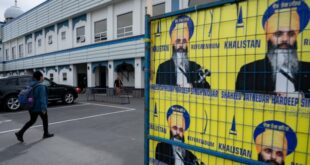KIDAPAWAN CITY, North Cotabato – The Supreme Court continues to find ways to broaden the geographical coverage of the Enhanced Justice on Wheels (EJOW), extending its reach to the most remote areas across the country with its video conference hearing in North Cotabato.

JAVIER (center) cited the pilot testing of the video conference hearing in Magpet, North Cotabato. (Ivy Tejano)
The SC, in partnership with the provincial government of North Cotabato, held on Thursday, November 30, the EJOW and the Increasing Access to Justice by the Poor Program and pilot tested the video conference hearing in a bus at the covered court in Magpet town.
Associate Justice Amy C. Lazaro-Javier said the Judiciary has effectively implemented the video conference hearing modality approach in Magpet.
“What we did today, a witness who is a resident of a barangay need not travel to Kidapawan City to attend and testify during the hearing. He boarded a bus with all these facilities with the use of satellites to make him testify even though he was not present in the court,” Javier said.
Javier described the reception in the area as quite clear. She said though there were slight delays in the delivery of words, the court was able to capture the essence as they would know how to understand the message through the context of the proceedings.
“I also observed the demeanor of the witness, he was relaxed. You would not see any anxiety at all. Perhaps he could not have been that relaxed and secured if he were face-to-face testifying in court,” she said.
On behalf of Chief Justice Alexander Gesmundo, Javier congratulated the provincial government on the retooling of the EJOW. She said the SC expects the program to be expanded nationwide.
Javier said that video conference hearing, which was enhanced in the SC’s five-year Strategic Plan for Judicial Innovations (SPJI), resulted in the release of Persons Deprived of Liberty (PDL).
She said that the SC conducted a pilot test of the video conference hearing in 2019 and executed it at the onset of the Covid-19 pandemic in March 2020 to ensure the uninterrupted functioning of courts nationwide. She added that the tool is pioneering in Kidapawan.
“We are pioneering a new tool that will hopefully make justice speedy and accessible to all, even in the far-flung areas around the country. We also ensured that the courts have fast internet connectivity to make the video conference smooth and efficient,” Javier said.
Javier said that based on success and learning during the EJOW event, the SC is looking to expand the rollout of the video conference hearing in buses under the EJOW program from North Cotabato up to the rest of the country.
“It speaks volume of the capability and the cooperation of the North Cotabato government. The fact that we are doing it here for the first time, it speaks volume on how we regard you as a partner and how we appreciate you as partners,” Javier said.
She thanked North Cotabato Gov. Emmylou J. Taliño-Mendoza, Kidapawan City Mayor Roy Lando, barangays in the city, and other stakeholders for their support in every SC project.
Mendoza also cited the SC and other stakeholders of the EJOW for hosting the event. She said the event is seen as beneficial in expediting the processing of detainees’ cases, bringing them hope.
“The provincial government of Cotabato is always mindful of human rights, even those inside our district jails, and we will be your partner as always, together with our law enforcers and other local government units (LGUs),” Mendoza said.
Javier said the pilot testing of the video conference hearing in the province is a significant step toward the realization of the vision of the EJOW program. She added that upgrading the EJOW bus is essential under the SC’s thrust to review and retool the program.
“It is only through innovations and improvements we can continue to dispense real justice. We endeavor to ensure that from Batanes to Tawi-Tawi, whether you’re in the cities of Metro Manila or the far-flung areas in Mindanao, you can rely on this open and real-time justice,” she said.
Javier said the program is instrumental in unclogging court dockets, decongesting overcrowded detention cells, and securing the release of qualified PDLs. She added that the EJOW has been an essential legal lifeline, especially for indigent inmates and remote communities.
“We are trying to develop a system where any member of the court and the Office of the Court Administrator will be able to push a button and verify the proceedings taking place in real-time. We can also verify the status of a particular case,” she said.
Since the SC only rented or borrowed the bus for EJOW, Javier hopes that with the help of Congress, they would be able to fund and appropriate the cost for the EJOW project, which is very important in improving the country’s system.
*****
Credit belongs to : www.mb.com.ph
 MaharlikaNews | Canada Leading Online Filipino Newspaper Portal The No. 1 most engaged information website for Filipino – Canadian in Canada. MaharlikaNews.com received almost a quarter a million visitors in 2020.
MaharlikaNews | Canada Leading Online Filipino Newspaper Portal The No. 1 most engaged information website for Filipino – Canadian in Canada. MaharlikaNews.com received almost a quarter a million visitors in 2020.

